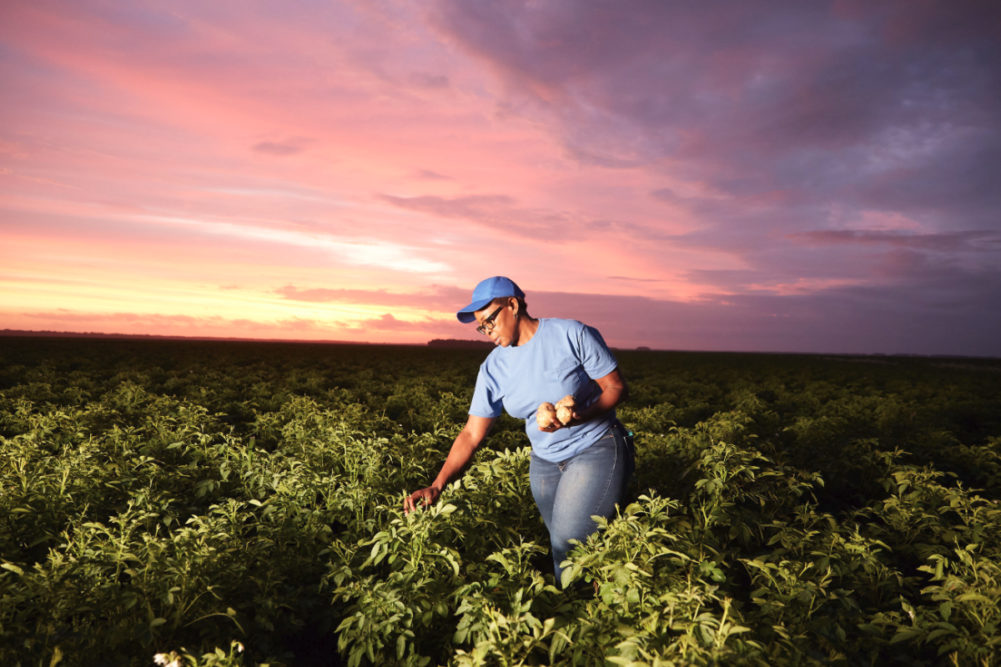PURCHASE, NY. — PepsiCo, Inc. announced several sustainability commitments Sept. 15, including embracing regenerative agriculture, reducing virgin plastic use, further evolving its food and beverage portfolio by incorporating more diverse ingredients, and accelerating the reduction of added sugars and sodium in its products. Branded as pep+, the company hopes to achieve many of its goals by the end of the decade.
“Pep+ will change our brands and how they win in the market,” said Ramon Laguarta, chairman and chief executive officer. “For example, imagine Lay’s will start with a potato grown sustainably on a regenerative field, and then be cooked and delivered from a net-zero and net water positive supply chain, sold in a bio-compostable bag, with the lowest sodium levels in the market.
“That’s a positive choice. That’s the best tasting, No. 1 potato chip of the future. That’s how pep+ will be better for people, for the planet, and for our business. Now, imagine the scale and impact when applied to all 23 of our billion-dollar brands.”
Three pillars will support the sustainability program, according to the company, including positive agriculture, positive value chain and positive choices. Positive agriculture will require spreading regenerative agriculture practices to land mass equal to the company’s agricultural footprint, which is approximately 7 million acres.
Through the positive value chain pillar PepsiCo expects to achieve net-zero emissions by 2040 and become net water positive by 2030. The pillar also includes a new goal to reduce virgin plastic per serving by 50% across PepsiCo’s global food and beverage portfolio by 2030. In the United States, all Pepsi-branded products will be converted to 100% rPET bottles by 2030, with Pepsi Zero Sugar beginning to be sold in the containers by 2022.
The company also plans to aggressively scale its Sodastream business globally. PepsiCo acquired Sodastream in 2018 for approximately $3.2 billion. Sodastream features a home carbonation system that eliminates the need for single-use plastic bottles. In addition to adding flavor options like Pepsi Zero Sugar, Lipton and bubly to the Sodastream portfolio, PepsiCo plans to expand into functional beverages with its Sodastream Professional platform. Through the expansion of Sodastream, PepsiCo hopes to eliminate more than 200 million plastic bottles by 2030.
“By rapidly expanding the Sodastream ecosystem, we are meeting the needs of consumers at home, away from home, and on-the-go,” said Jim Andrew, chief sustainability officer. “At the same time, we are also offering consumers positive choices that use less plastic, create fewer emissions, and are better for people. Pep+ is our roadmap to create the food and drinks people love in a way that helps build the sustainable future we all must have.”
The positive choices pillar will involve developing more products that are positive for the planet, according to the company. PepsiCo said it plans to incorporate more diverse ingredients with nutritional benefits into its products like chickpeas, plant-based proteins and whole grains.
The company also plans to expand its position in the nuts and seeds category by targeting such markets as Mexico, China and several Western European markets, and committed to accelerating efforts to reduce added sugars and sodium through the use of science-based targets.
“Pep+ is the future of our company — a fundamental transformation of what we do and how we do it to create growth and shared value with sustainability and human capital at the center,” Mr. Laguarta said. “It reflects a new business reality, where consumers are becoming more interested in the future of the planet and society.”





